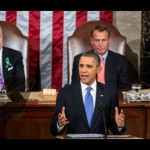Progressives using conservative language caused Wisconsin recall to fail.
by George Lakoff Rockridge Institute
The Wisconsin recall vote should be put in a larger context. What happened in Wisconsin started well before Scott Walker became governor and will continue as long as progressives let it continue. The general issues transcend unions, teachers, pensions, deficits, and even wealthy conservatives and Citizens United.
Where progressives argued policy — the right to collective bargaining and the importance of public education — conservatives argued morality from their perspective, and many working people who shared their moral views voted with them and against their own interests. Why? Because morality is central to identity, and hence trumps policy.
 |
|
In Wisconsin, much if not most progressive messaging fed conservative morality centered around individual, not social, responsibility.
|
|
Progressive morality fits a nurturant family: parents are equal, the values are empathy, responsibility for oneself and others, and cooperation. That is taught to children. Parents protect and empower their children, and listen to them. Authority comes through an ethic of excellence and living by what you say, rather than by enforcing rules.
Correspondingly in politics, democracy begins with citizens caring about one another and acting responsibly both for oneself and others. The mechanism by which this is achieved is The Public, through which the government provides resources that make private life and private enterprise possible: roads, bridges and sewers, public education, a justice system, clean water and air, pure food, systems for information, energy and transportation, and protection both for and from the corporate world. No one makes it on his or her own. Private life and private enterprise are not possible without The Public. Freedom does not exist without The Public.
Conservative morality fits the family of the strict father, who is the ultimate authority, defines right and wrong, and rules through punishment. Self-discipline to follow rules and avoid punishment makes one moral, which makes it a matter of individual responsibility alone. You are responsible for yourself and not anyone else, and no one else is responsible for you.
In conservative politics, democracy is seen as providing the maximal liberty to seek one's self-interest without being responsible for the interests of others. The best people are those who are disciplined enough to be successful. Lack of success implies lack of discipline and character, which means you deserve your poverty. From this perspective, The Public is immoral, taking away incentives for greater discipline and personal success, and even standing in the way of maximizing private success. The truth that The Private depends upon The Public is hidden from this perspective. The Public is to be minimized or eliminated. To conservatives, it's a moral issue.
These conservative ideas at the moral level have been pushed since Ronald Reagan via an extensive communication system of think tanks, framing specialists, training institutes, booking agencies and media, funded by wealthy conservatives. Wealthy progressives have not funded progressive communication in the same way to bring progressive moral values into everyday public discourse. The result is that conservatives have managed to get their moral frames to dominate public discourse on virtually every issue.
In Wisconsin, much if not most progressive messaging fed conservative morality centered around individual, not social, responsibility. Unions were presented as serving self-interest — the self-interests of working people. Pensions were not presented as delayed earnings for work already done, but as "benefits" given for free as a result of union bargaining power. "Bargaining" means trying to get the best deal for your own self-interest. "Collective" denies individual responsibility.
The right wing use of "union thugs" suggests gangs and the underworld — an immoral use of force. Strikes, to conservatives, are a form of blackmail. Strikebreaking, like the strict father's requirement to punish rebellious children, is seen as a moral necessity. The successful corporate managers, being successful, are seen as moral. And since many working men have a strict father morality both at home an in their working life, they can be led to support conservative moral positions, even against their own financial interests.
What about K-12 teachers? They are mostly women, and nurturers. They accepted delayed earnings as pensions, taking less pay as salary — provided their positions were secure, that is, they had tenure. In both their nurturance and their centrality to The Public, they constitute a threat to the dominance of conservative morality. Conservatives don't want nurturers teaching their children to be loyal to the "nanny state."
The truth that The Public is necessary for the Private was not repeated over and over, but it needed to be at the center of the Wisconsin debate. Unions needed to be seen as serving The Public, because they promote better wages, working conditions, and pensions generally, not just for their members. The central role of teachers as working hard to maintain The Public, and hence The Private, also needed to be at the center of the debate. These can only be possible if the general basis of the need for The Public is focused on every day.
Scott Walker was just carrying out general conservative moral policies, taking the next step along a well-worn path.
What progressives need to do is clear. To people who have mixed values — partly progressive, partly conservative — talk progressive values in progressive language, thus strengthening progressive moral views in their brains. Never move to the right thinking you'll get more cooperation that way.
Start telling deep truths out loud all day every day: Democracy is about citizens caring about each other. The Public is necessary for The Private. Pensions are delayed earnings for work already done; eliminating them is theft. Unions protect workers from corporate exploitation — low salaries, no job security, managerial threats, and inhumane working conditions. Public schools are essential to opportunity, and not just financially: they provide the opportunity to make the most of students' skills and interests. They are also essential to democracy, since democracy requires an educated citizenry at large, as well as trained professionals in every community. Without education of the public, there can be no freedom.
At issue is the future of progressive morality, democracy, freedom, and every aspect of the Public — and hence the viability of private life and private enterprise in America on a mass scale. The conservative goal is to impose rule by conservative morality on the entire country, and beyond. Eliminating unions and public education are just steps along the way. Only progressive moral force can stop them.
In taking over the framing of just about every major issue, conservatives have hidden major truths. Democrats need to speak those truths from their own moral perspective. To show how, we have just published The Little Blue Book: The Essential Guide for Thinking and Talking Democratic.
The Little Blue Book is a guide to how to express your moral views and how to reveal hidden truths that undermine conservative claims. And it explains why this has to be done constantly, not just during election campaigns. It is the cumulative effect that matters, as conservatives well know.
The Little Blue Book can be ordered as en e-book or paperback at Amazon, Barnes & Noble, iTunes, or at your local bookstore as of June 26.

 George Lakoff is the author of Moral Politics, Don't Think of an Elephant!, Whose Freedom?, and Thinking Points (with the Rockridge Institute staff). He is Richard and Rhoda Goldman Distinguished Professor of Cognitive Science and Linguistics at the University of California at Berkeley, and a founding senior fellow at the Rockridge Institute.
George Lakoff is the author of Moral Politics, Don't Think of an Elephant!, Whose Freedom?, and Thinking Points (with the Rockridge Institute staff). He is Richard and Rhoda Goldman Distinguished Professor of Cognitive Science and Linguistics at the University of California at Berkeley, and a founding senior fellow at the Rockridge Institute.



